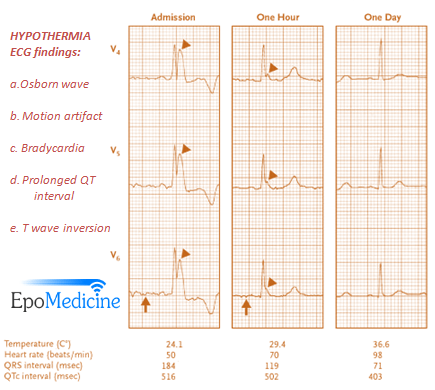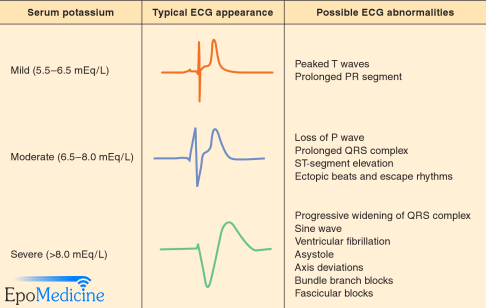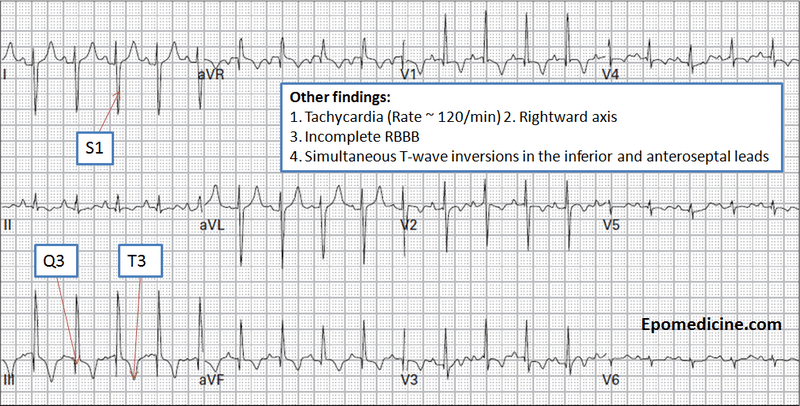Synonyms: Pulmonary artery embolism, Pulmonary embolus, PE Definition: A pulmonary embolus (PE) is a blood clot that embolizes to the lungs. When a clot from peripheral veins, the right atrium or the right ventricle travels into the pulmonary circuit, it effectively blocks forward blood through a portion of the lung…
Category: Emergency Medicine
The Real Emergency Room scenarios, cases and topic reviews. Medical emergency conditions – approach to diagnosis and management.

ECG changes in Hypothermia
Synonyms: Accidental hypothermia, Neurotensin-induced hypothermia, Endogenous cryogen-induced hypothermia, Hypoxia-induced hypothermia, Primary hypothermia, Secondary hypothermia Definition: The normal body temperature is around 37 c or 98.6 F. Hypothermia is defined as the lowering of core body temperature below 35°C or 95°F. Classification (Grading): Mild: 32°C to 35°C (90°F to 95°F) Moderate: 28°C…

ECG changes in Hyperkalemia
Synonym: Hyperpotassemia Definition: Serum potassium (K+) > 5 mEq/l Electrophysiologic basis of ECG changes: In patients with mild hyperkalemia, potassium conductance (IKr) through potassium channels is increased, which tend to shorten the AP duration and on the ECG causing tall tented T waves. With severe hyperkalemia, effect on RMP becomes…
